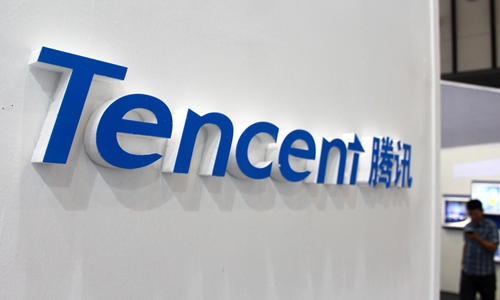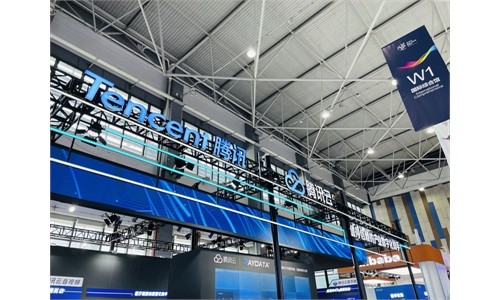
China's technology giant Tencent reaches out to individuals and organizations worldwide with its telecommunication services. Photo: cnsphoto
Chinese regulator has ordered Tencent Music Entertainment Group to give up its exclusive rights to music labels in 30 days, marking the first case since the implementation of China's Anti-Monopoly law that demands rectification from illegal concentrations of undertakings to restore market competition .
China's State Administration of Market Regulation (SAMR) also issued a 500,000 yuan ($77,150) penalty to Tencent Music, according to the document published on the site of SAMR on Saturday.
This is the first case in which necessary measures have been taken to restore market competition against illegally operator concentration since the implementation of China's Anti-Monopoly Law, a SAMR statement said.
The fine comes after Tencent Music misreported its acquisition of major market competitors, which caused serious impacts to the market, Chen Danzhou, an assistant professor at the School of Law at the University of International Business and Economics in Beijing, told the Global Times on Saturday.
In 2016, Tencent Music and China Music Group's market shares were about 30 percent and 40 percent. After mergers with major competitors in the market, Tencent Music now occupies more than 80 percent of exclusive music resources, according to the SAMR statement.
SAMR has also ordered Tencent Music to stop payment methods for copyright fees such as high prepayments and not to require upstream copyright owners to give Tencent Music conditions superior to their competitors without justifiable reasons, according to a statement from SAMR.
In response, Tencent Music said it will earnestly abide by the SAMR's decision, strictly implement the regulatory requirements, operate in compliance with laws and regulations, earnestly fulfill its social responsibilities, and maintain healthy competition in the market.
This is a landmark case to restore market competition order in China, especially for the emerging platform economy, Chen said, adding that the punishment has sent a clear signal to dominating companies, both domestic and foreign, that market players should not seek monopoly market status by signing long-term exclusive agreements.
Global Times


